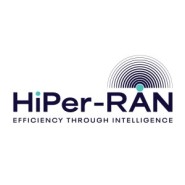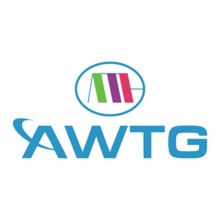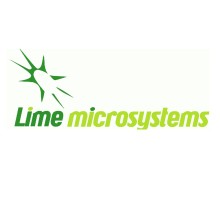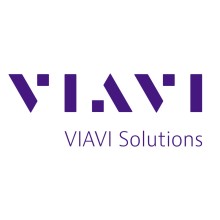
Hiper-RAN
Start date
September 2023End date
March 2025Overview
A radio access network (RAN) is a major part of a wireless telecommunications system that connects individual devices, such as mobile phones, computers and other remotely controlled devices, to the core network of the telecommunication systems.
The traditional RAN approach generally requires telecommunications operators to work with single suppliers across an entire mobile network, which can be a barrier to entry for smaller suppliers with fewer resources.
Open RAN marks a paradigm shift from conventional monolithic RAN architectures to disaggregated designs with open interfaces that can enable interoperability, diversify the 5G supply chain and boost innovation.
About the project
The 'Highly Intelligent, Highly Performing RAN (HiPer-RAN)' project, led by the University of Surrey, is a ground-breaking initiative aimed at overcoming key challenges in software automation and efficiency to propel the UK's mobile telecommunications infrastructure to new heights.
By addressing the 'radio intelligent controller (RIC) and other radio access network software automation' challenges outlined by the Department for Science, Innovation, and Technology within the Open Networks Ecosystem Competition, the consortium seeks to drive innovation and deliver tangible performance improvements.
Our mission involves the creation of an open platform that will serve as a host for diverse, software-based intelligence, encompassing the entire HiPer-RAN innovations across the entire RAN architecture – from the higher layers down to the physical layer. The result? Measurable benefits at a systemic level.
Embracing a holistic approach, our project goes beyond the development of an advanced RIC framework. We will introduce support for novel, highly efficient multiple-input and multiple-output (MIMO) transmissions, contributing to the evolution of the telecommunications landscape.
Building upon existing RIC developments, offered by participating partners, this project will:
- Extend the scalability, enhance the interfaces for low latency message exchanges between RICs and other network elements.
- Design a security framework to improve resilience.
- Introduce AI conflict resolution to manage xApps/rApps.
- Develop new generation of xApps/rApps utilising the enhanced RICs to automate the network.
Based on the advanced (m)MIMO radio solution developed by the partners, this project will also:
- Introduce new innovative solutions for (m)MIMO support.
- Develop joint scheduling and RRM optimisation to translate the benefits of conventional and our advanced (m)MIMO processing approaches into tangible gains.
Aims and objectives
Unlike traditional methods that isolate RIC from the overall Open-RAN architecture, HiPer-RAN considers the entire system, from high-level architecture to physical layers, aiming for practical improvements.
High-capacity, high-performance RIC framework
This project will create an efficient, secure, and scalable RIC Framework for mobile networks, compatible with various software providers. It will undergo thorough interoperability testing and be designed to handle growing data, user numbers, and network components.
Energy-efficient physical layer
Managing a mobile network's energy use is complex. It involves multiple factors across the RAN architecture – from the energy efficiency of the RIC itself down to the flexibility, implementation properties (e.g., software/hardware), and capabilities (e.g., number of antennas, algorithms) of the physical layer.
To address these issues, we aim to develop a RIC-aware physical layer framework capable of using intelligence to explore related interplays. This will offer high performance, energy efficiency, and low-latency operation.
This project will use the University of Surrey's cutting-edge, software-based physical layer processing architecture, connecting it to the flexible radio units (O-RUs, the hardware that sends and receives radio signals) that Lime Microsystems will be developing. This will enable the team to identify power consumption and performance trade-offs and quantify the energy savings the developed RIC can offer.
AI to help resolve conflicts
To develop AI conflict resolution solutions, the RIC framework specifically needs the ability to identify and resolve conflicting decisions made by xApps/rApps (specialised software programs that help manage the network). This is especially important when these apps are developed by different companies but have to work together within the same RIC. To achieve this, we will leverage the world-leading expertise of our industrial partners in xApps/rApps development.
Cyber security
We will develop a cybersecurity framework and demonstrate that the developed RIC can withstand common external malicious attacks. We will develop a hybrid intrusion prevention/detection system that will monitor the signals of RIC and related components such as xApps and rApps, flagging or preventing malicious signals based on known patterns or signatures.
Radio resource management (RRM)
To enable intelligent features like admission control and radio slicing, we aim for an energy-efficient RRM. To address this complex issue, we will develop smart RRM solutions that consider the spatial aspects of multiple antennas talking to each other (e.g., MIMO and massive MIMO) exploiting Surrey's experimental Open-RAN physical layer, which uniquely supports both MIMO and non-linear signal processing for MIMO systems.
These innovations hold significant potential to revolutionise future Open-RAN performance.
Funding
This project has been awarded a £7.8 million research grant funded by the the Department of Science, Innovation and Technology (DSIT) as part of the Open Networks Ecosystem Competition.

Team
This project is led by the University of Surrey and consists of organisations with a wealth of expertise, all with an ambition to develop and adopt Open RAN technologies to support the UK's leading role in this field.
Project lead

Dr Konstantinos Nikitopoulos
University of Surrey
See profileProject participants








Contact
Join us in shaping the future of mobile telecommunications – where intelligence meets performance, and innovation transforms possibility into reality.
To find out more contact hiper-ran@surrey.ac.uk.